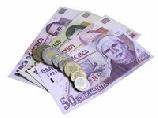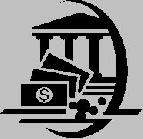
 |
|
| Financial Terms | |
| Federal Employer Identification Number |
|
Information about financial, finance, business, accounting, payroll, inventory, investment, money, inventory control, stock trading, financial advisor, tax advisor, credit.
Main Page: business, accounting, financial, money, stock trading, tax advisor, financial advisor, investment, |
Definition of Federal Employer Identification Number
Federal Employer Identification NumberA unique identification number issued
Related Terms:Federal agency securitiesSecurities issued by corporations and agencies created by the U.S. government, Federal credit agenciesAgencies of the federal government set up to supply credit to various classes of Federal Deposit Insurance Corporation (FDIC)A federal institution that insures bank deposits. Federal Financing BankA federal institution that lends to a wide array of federal credit agencies funds it Federal fundsNon-interest bearing deposits held in reserve for depository institutions at their district federal Federal funds marketThe market where banks can borrow or lend reserves, allowing banks temporarily Federal funds rateThis is the interest rate that banks with excess reserves at a federal Reserve district bank  Federal Home Loan BanksThe institutions that regulate and lend to savings and loan associations. The Federal Reserve SystemThe central bank of the U.S., established in 1913, and governed by the federal Federally related institutionsArms of the federal government that are exempt from SEC registration and Freddie Mac (Federal Home Loan Mortgage Corporation)A Congressionally chartered corporation that Law of large numbersThe mean of a random sample approaches the mean (expected value) of the NUMBER OF DAYS SALES IN RECEIVABLES(also called average collection period). The number of days of net sales that are tied up in credit sales (accounts receivable) that haven’t been collected yet. Specific identificationA method of accounting for inventory. Federal Reserve (the Fed)The central bank in the United States, responsible for setting interest rates. Federal Funds RateThe interest rate at which banks lend deposits at the federal Reserve to one another overnight.  Federal Open Market Committee (FOMC)Fed committee that makes decisions about open-market operations. Federal Reserve BanksThe twelve district banks in the federal Reserve System. Federal Reserve BoardBoard of Governors of the federal Reserve System. Federal Reserve SystemThe central banking authority responsible for monetary policy in the United States. Electronic Federal Tax Payment Systems (EFTPS)An electronic funds transfer system used by businesses to remit taxes to the government. EmployerA person or entity that directs and controls the work of individuals in Federal Insurance Contributions Act of 1935 (FICA)A federal Act authorizing the government to collect Social Security and Medicare payroll taxes. Federal Unemployment Tax Act (FUTA)A federal Act requiring employers to pay a tax on the wages paid to their employees, which is then used to create a Financial Numbers GameThe use of creative accounting practices to alter a financial statement Item numberA number uniquely identifying a product or component. Nonsignificant part numberAn identifying number assigned to a part that conveys Part numberA number uniquely identifying a product or component. Significant part numberAn identifying number assigned to an item that conveys PIN (personal identification number)A secret code that you use to access your bank account at a bank machine or at a point of sale (POS) terminal. You may also have a PIN for banking by telephone. Related to : financial, finance, business, accounting, payroll, inventory, investment, money, inventory control, stock trading, financial advisor, tax advisor, credit. |